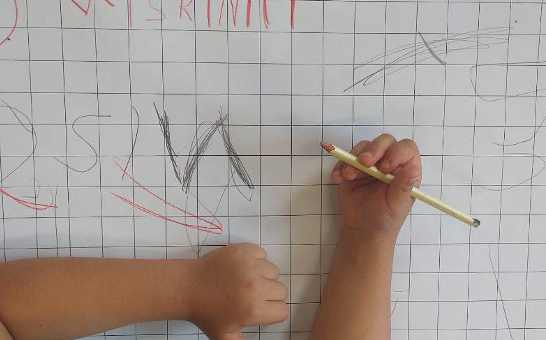
Singing and Caring Thinking in a Learning Environment for Refugee Children (SingCaRe): A Participatory Design-Based Research Study
Prof. Dr. Silke Schmid
Mahsa Mohammadhosseini
Projektlaufzeit: 2023–2027
Gefördert durch den DAAD

Sustainable education of children is a central concern of the present era. However, equity-based teaching is still a desideratum (Hunter & Frawley, 2023). That is even more the case with respect to vulnerable groups like refugee children. Many initiatives have offered music programs to refugee children (Crawford, 2017; Marsh, 2017), which impacted social connectedness (Heynen et al., 2022) and children´s settling in (Marsh, 2017). Yet, studies rarely provide systematizations regarding the design of such educational settings. It can be assumed that the challenge for music education following Sustainable Development Goals (SDGs) 3 (wellbeing) and 4 (quality education) may be met by e.g. designing settings implementing Caring Thinking (Lipman, 2003) as it modifies determination and self-care (Dombaycı et al., 2011). However, the number of studies investigating the concept of caring thinking is small (Uluçınar & Arı, 2019), and music education discourse has only started to acknowledge it (Hendricks, 2023).
Before this background, the research grounds the design of a singing-based learning environment (SLE) on the enhancement of caring thinking. The research pilots, tests, and implements design principles fostering caring thinking in an SLE for primary school-aged refugee children. Thus, the study aims to contribute to the empirical and theoretical foundation for the design of equitable educational settings. It, therefore, has two objectives: (1) to develop design principles employing an equity-based approach to singing fostering caring thinking. (2) to gain insight into the effects of the SLE.
Since the project wants to explore future possibilities (Euler, 2014), a Design-Based Research format has been chosen which integrates participatory methods. The design of the SLE is iteratively developed and investigated in terms of how it enhances the caring thinking of participants. To gain deep insight into the functionality of the SLE, the study combines an array of qualitative methods (e.g. group interviews integrating nonverbal methods like drawing and picture cards) in a Grounded Theory framework reconstructing the participants‘ orientations concerning caring thinking.
The project will develop prototypical design principles and draws on a heuristic model allocating key features of the SLE in establishing a musical community of exploration (Sharp, 2017) implementing e.g. story-telling and specific singing games.
Following the intention to ensure equitable education (SDG 4) while promoting child well-being (SDG 3) for a sustainable future, the study contributes to SLEs complying with the needs of children at risk.
Weiterführende Informationen
Mohammadhosseini, M. & Schmid, S. (2024). Singing and Caring Thinking in a Multimodal Learning Environment for Refugee Children (SingCaRe): Insights into a Design-Based Research Study. Paper. 36th World Conference of the International Society for Music Education 2024 (ISME). 30.7.2024. Helsinki.
Mohammadhosseini, M. (2024). Singing and Caring Thinking in a Hybrid, Multi-Modal Learning Environment for Refugee Children (SingCaRe): Design-Based Research Study. Vortrag. DBR-Forschungsgruppen-Tagung Design-Based Research in der Musikpädagogik. 26.2.2024. Wien. (Online).
Mohammadhosseini, M. (2023). White Ant Atelier. Workshop. Zuka-Café. 21.11.2023.
